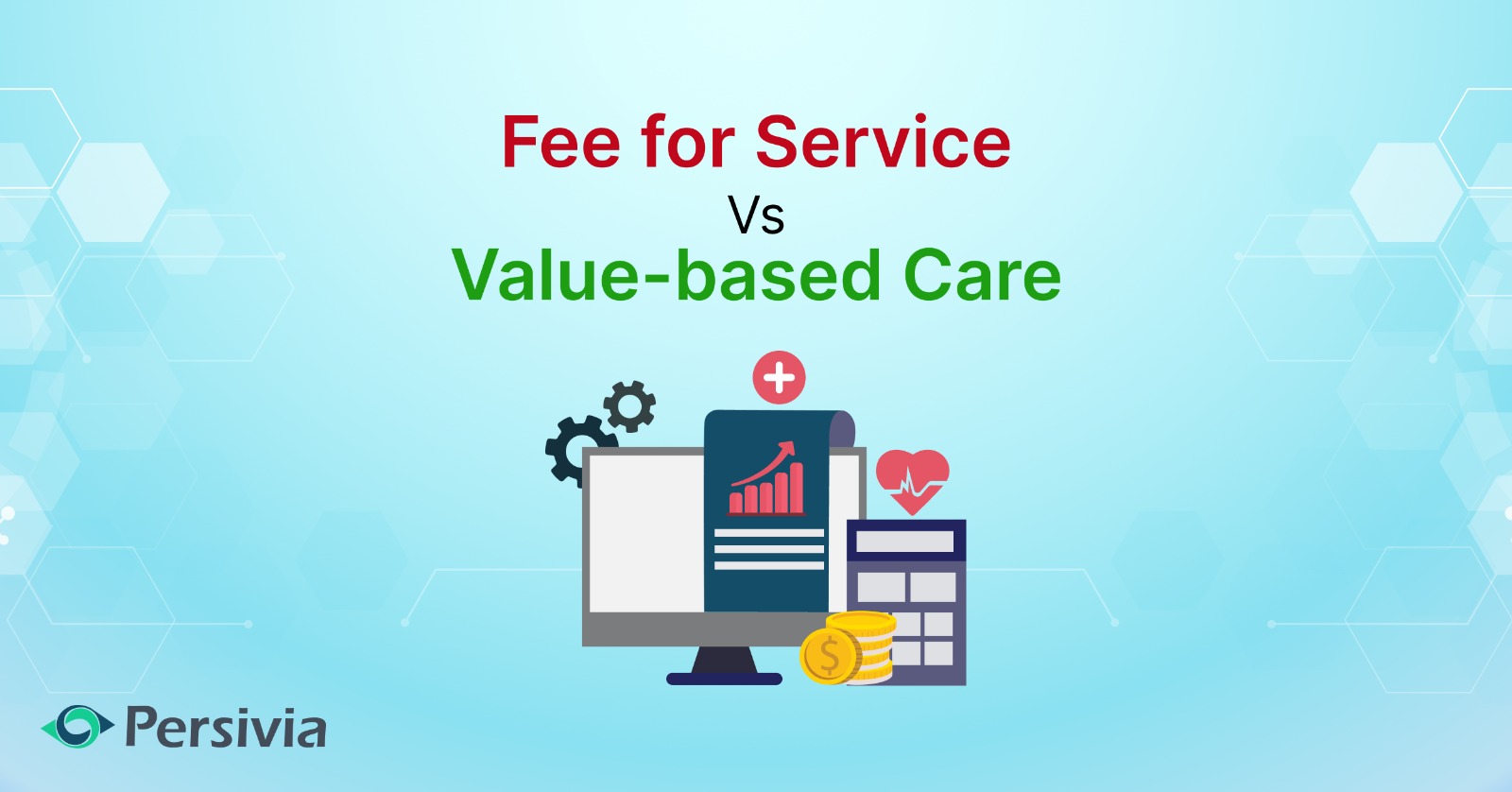Fee for Service and value-based care stand as distinct payment models. Oftentimes, healthcare professionals find themselves stuck in the battle of Fee for Service vs Value-Based Care. Let’s first understand what is Fee for Service and what is Value-based Care. Fee for Service, a conventional approach, compensates providers for each service rendered, irrespective of outcomes. This setup often drives excessive tests and procedures.
Conversely, value-based care, a contemporary alternative, prioritizes care quality over quantity. Providers are rewarded for positive outcomes and maintaining patient health, fostering preventive measures and minimizing unnecessary interventions.
Patient satisfaction diverges drastically in these models. Fee for Service may neglect it, given reimbursement tied to services, whereas value-based care, hinging on outcomes, places a premium on patient contentment and links it to reimbursement rates. Cost implications diverge too; Fee for Service can escalate expenses with overutilization, while value-based care targets cost reduction by curbing unnecessary treatments and hospitalizations.
The Superiority of Value-Based Care
• Incentivizing Preventive Care:
VBC’s focus on maintaining patient health encourages preventive measures, reducing the need for costly treatments and interventions in the long run.
• Enhanced Collaboration and Coordination:
VBC fosters collaboration among different providers and specialties, ensuring a more cohesive and coordinated approach to patient care. This synergy leads to improved patient outcomes.
• Promoting Health Equity:
VBC contributes to health equity by rewarding providers for achieving positive outcomes, irrespective of a patient’s ability to pay. This ensures that all patients receive high-quality care.
• Cost Savings for Patients and Systems:
By incentivizing positive outcomes, Value-based care VBC not only improves patient health but also translates into substantial cost savings for both patients and healthcare systems.
• Long-Term Improvement in Healthcare Quality and Affordability:
Experts widely advocate for transitioning towards a value-based system as it aligns with the overarching goal of improving healthcare quality and affordability in the long term.
Choosing The Right Path
Despite pros and cons, experts favor transitioning to value-based systems for enhanced healthcare quality and affordability. FFS empowers patient choices but is critiqued for potential overuse, while value-based care incentivizes preventive measures and collaborative care, aiming at cost savings and health equity.
Ultimately, the choice between Fee for Service and value-based care hinges on factors like financial goals, patient demographics, and regulatory demands. Some may favor Fee for Service for revenue maximization, while others, prioritizing outcomes and prevention, lean towards value-based care. Hybrid models, blending both, may also emerge, emphasizing the necessity to align payment models with the best interests of patients and the healthcare system.
Table of Contents
